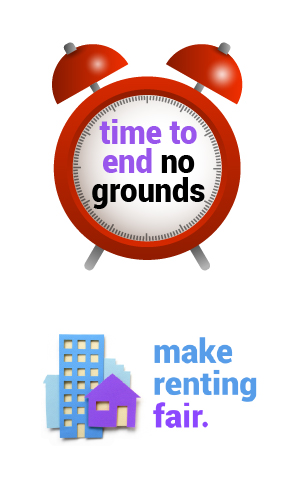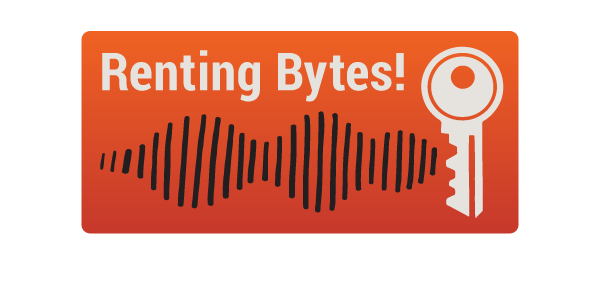Getting your LL plates?
Leo Patterson Ross • 23/02/2021
There is currently a petition in NSW Parliament for the creation of a “Landlord non-compliance register”. Though the Tenants’ Union of NSW did not create this petition, you should consider signing it if the issues resonate with you. We also think Government should act to address the issues in it, because it speaks to some of the most frustrating aspects of renting in NSW and Australia. But will it achieve its goal of promoting accountability amongst landlords? Do some in the industry actually need more assistance to earn their landlord plates?
Rachel is the creator of the petition and she was moved to create it after a particularly bad renting experience, something many, many tenants have also been through. When we first mentioned the petition on our Facebook page, it got a big response because it really does speak to the feeling of frustration many tenants have. It’s a feeling that there is a deep lack of transparency and accountability around who rents out properties, that is particularly disproportionate compared to the extreme level of transparency and accountability around who lives in them. Rachel is a landlord herself (1 in 8 property investors are also renting their home) and has spoken about feeling that dodgy landlords are giving everyone else a bad name.
In Rachel's words to Domain:
“I want dodgy landlords to think twice before trying to do over a tenant because they will be put on a database that anyone can access... In NSW, a tenant enters a lease with no indication of what the landlord has been like in the past. Tenants don’t have access to maintenance records, ex-tenant references or any tribunal dealings the landlord has been involved in and, by the time a tenant finds out there are maintenance or landlord issues, they’ve already spent the time and money moving in.”
Here’s Rachel’s explainer of what the petition is asking for and why.
There are two parts to the petiiton - the register of Tribunal orders that a landlord has had made against them has received the most attention. The second part is that the Tribunal itself needs more power to hold landlords accountable.
The petition currently has reached 1668 signatures on it in just 10 days. As the petition has reached 500 signatures, this means the Minister for Innovation and Better Regulation, Kevin Anderson MP, will need to respond in writing to the request. If it reaches 20,000 signatures then the NSW Parliament will need to debate the petition and its request. This doesn’t mean the petition will be successful, but the issues will be more fully aired. This number of signatures is a big ask. Only three e-petitions have reached the 20,000 signatures needed since the electronic system was launched last year - but the petition is open until the 30th of April.
What already exists and why isn’t it working?
One of the fundamental issues with tenancy regulation is that most of it relies on the individual enforcement of a contract by the two parties. However, it is lopsided because putting everything else aside they actually generally work towards the same end result - the tenant loses.
If a landlord is unhappy with the tenant’s performance of the contract, regardless of whether it is an actual breach, they force the tenant to leave their home by evicting them. If a tenant is unhappy with the landlord’s performance of the contract, they are ultimately forced to leave to avoid putting up with whatever problem is happening.
Although along the way, compensation may be paid or rent reduced at the end of the line, the tenant faces the same outcome of moving on. In theory, the landlord faces some jeopardy here - they may not be able to find new tenants. In reality, for the vast majority of circumstances there is always someone desperate enough to move in. This dynamic creates the very lopsided approach to regulation we are familiar with in NSW.
Some might say this isn’t really different from other consumer interactions - if you don’t like the way a shop runs things, you just don’t shop there. The problem is, home is quite different to other consumer experiences. Home is so important in our lives in a variety of ways. It impacts our health, our economic prospects, our family and community life. Our alternative options for finding a home, when problems emerge are so limited that people aren’t able to easily make the choice to leave. This creates an imbalance in the way the contract and the law is applied in the real world, and so far our legislation and regulatory environment has failed to address this.
Landlord databases/review sites
The register is compared and contrasted to the tenant databases which are privately run, so let’s just quickly address why the market can’t create a landlord database. There have been dozens of attempts to create privately run landlord databases. But even the most successful come up against the same big problem (which is also going to be a problem for the petition) - renting is not like other consumer experiences. There are three barriers that private databases have to overcome to ensure they deliver the desired outcome and make enough money to continue running - volume, utility and credibility.
Volume
Let’s think about something like TripAdvisor or even google reviews. A business like a hotel with say 100 rooms has potentially 100 guests a night. Of course it’s not always full and often those guests stay for multiple nights. Let’s say they average 80% of their rooms filled each night and the average stay is 3 nights. That is nearly 10,000 people through a year. If 50% of people feel strongly enough about their stay to leave a review that’s nearly 5,000 people sharing their opinion about the service they’ve received. Even a small bed and breakfast with 5 rooms, might see about 250 reviews a year.
These new reviews come in every day, and so if the hotel starts seeing their reviews fall they can do something about it. Potential guests can see the change in the ratings and make their decision about whether to stay there based on the new management approach.
On the other hand in renting, there is one customer staying at a time, and usually for at least 12 months, if not much longer. The median tenancy in NSW currently lasts about 18 months. But for arguments sake, we’ll take 6 months. If 50% of people feel strongly enough about their experience and confident enough to leave a review, the best you might expect is that each property will receive a review approximately once every 2 years. In the same timeframe that a residential property receives one review, even a little bed and breakfast has 500!
There is just not enough volume for reviews to give the information people may need to be able to make a decision. Which leads to...
Utility
For the platform to be useful to a prospective tenant, you need to get the information about the properties in a timely manner and you need genuine alternative options that you are choosing between. It is no good to you if the particular properties you are considering have no listing, even though there are real issues with the property. It's also not that useful if you have a review of a property but it's from several years prior. But the big problem is the alternative options. Imagine you have 10 places you're considering going and visiting on the weekend. 1 of them does have a listing that suggests maintenance might be a bit of an issue. You visit 9 properties along with 30 other people. You don't get any of them. The 10th property is still listed. Are you really not going to put in the application? Of course you are.
It's a lucky person who can confidently walk away from a home, but of course you can be a lot more discriminating if your alternative options are numerous. This refers back to a long standing problem for people interested in housing justice - people who don't have as broad a range of options, whether by lack of wealth, income, or by discriminatory practices, are left renting increasingly poorer quality housing that may be more likely to cause or exacerbate poor health. This is just the norm in a system that distributes housing based on your wealth and income without enforced minimum standards of housing.
Credibility
While platforms have struggled to get volume, they’ve also struggled to get credibility. As well as whether the review is sufficiently recent to tell you relevant information about the current owner and manager, they can sometimes be dismissed as some form of sour grapes. There is a real risk to both platform and the person listing that the person being listed will threaten defamation. It takes a strong will, and sufficiently deep pockets to be able to put in place quality control of listings and also stare down empty defamation threats (that frequently come with the threat of legal costs, regardless of outcome).
The proposed landlord non-compliance register addresses this by only using Tribunal orders - it will simply be a true statement of what happened. However, we know that tenants do not apply to the Tribunal for orders because of the possible repercussions such as being evicted, or not receiving a reference. Many application forms ask if you have been to the Tribunal - and tenants know agents and landlords look negatively at answers in the affirmative, regardless of why. Standing up for your rights can put your future housing at risk, because our application process is almost entirely unregulated.
NSW Fair Trading Complaints Register
We do already have a public Complaints Register of consumer complaints which includes landlords. There are two problems here. One is that a business needs to receive 10 complaints in a month to be listed, just for that month. Given the volume issue from before, that clearly is nearly impossible for most landlords in NSW. Only a very small number own that many properties. In 2018 NSW Fair Trading did consider reducing the number of complaints needed from 10 in a month to just 1, which we supported. Unfortunately it did not happen.
The complaints database also doesn't list businesses by address, but by name. That reduces its usefulness to prospective tenants, who generally won't know the name until their lease is being signed, This could be addressed easily enough if government wanted to go down this route.
Accountability and enforcement
The other request in the petition is to enhance the role of the NSW Civil and Administrative Tribunal (NCAT) in issuing penalties and keeping landlords accountable. At the moment NCAT does have penalties it can issue for people who intentionally mislead the Tribunal or who ignore Tribunal orders. These are applied very sparingly and carry heavy penalties. There certainly is a conversation to have there, but most of the penalties currently issued under the Act are issued by NSW Fair Trading.
There are 33 penalty notices (initial fines that don't need a court order) that can be issued under the Residential Tenancies Act 2010 against landlords, agents or database operators for various breaches of the Act, including a potential catch-all of a person seeking to evade the operation of the Act. In 2018/2019 - the most recent financial year we have all the data available for - there were just 26 penalty notices issued, compared to 2,980 complaints made. When we compare that to other complaints and penalties, it really appears that tenants' complaints may not be given the same weight as other complaints are. This seems strange in an industry where the average cost per year in NSW is just under $24,000 and it is the highest cost for most households.
Following a complaint and discovery of breaches of the Act, NSW Fair Trading generally takes an approach of education at first. This is reasonable enough, as part of an overall strategy that also sends a clear message to people that breaching the Act is something government takes seriously. However, I worry that the very low rate of enforcement activity actually sends the opposite message. Many tenants report a poor experience and the state of our rental stock is widely acknowledged to have high rates of unattended maintenance. This is something tenant advocates see first hand, and is also supported by academic research and government agencies such as the Productivity Commission. In the face of that, low enforcement rates risk sending a message of acceptance of routine breaches of the Act. However, we also recognise that Fair Trading may simply not have the resources to properly investigate the breaches. They may also currently not feel empowered to hold amateur landlords to account in the same way that people who have specific licence requirements do.
Licenced to rent?
As Rachel points out, tenant don’t receive maintenance records when they move in, and a non-compliance register wouldn’t address this. What could address it, as well as introducing accountability and enforcement of current law, is a general licencing or registration system. This really isn’t a wild idea. We ask all cafes and restaurants to register themselves and undertake certain requirements. We ask it of all hairdressers, builders, agents, doctors, nurses. We do this for businesses that, if poorly managed, carry a risk of sufficient adverse financial or health impacts for consumers.
Usually the businesses required to hold a licence or register are required to ensure appropriate training and customer risk management is undertaken - except housing providers. Which is strange given that a poorly managed property can be both costly and unhealthy. As more and more people recognise how important our homes are, it really matters that the standard of both the home itself and the professional standard of the person providing it are meeting community needs.
Scotland has recently established a landlord register. The registration costs about $117AUD every 3 years, with discounts for multiple properties. $117 every 3 years is not onerous at all, representing 0.01% of median rent. This amount in NSW would raise around $30million a year for the scheme, which as well as enforcement could also include training or education for new entrants just as in other industries. The exact fee would need to be looked at, but it should be pitched as recouping the costs of running the scheme rather than making extra money.
As I told Domain in the article above:
“Landlords are running a business and there should be some training or quality control like with running many other businesses... What’s appropriate in many other industries is also appropriate for property investment. Landlords need to understand the law and their business set-up and be holding the right insurance and undergo training to manage properties in an effective way. Everyone should be registered to give them visibility and transparency and to weed out the bad participants.”
By having all property investors register and show that they have enough cashflow to cover their maintenance obligations, insurance to cover risks, and an understanding of their legal obligations, we also have the ability to list breaches and the results of investigations by NSW Fair Trading or NCAT. The registration fee can help pay the costs for Fair Trading to investigate complaints.
Something worth considering, Minister?




